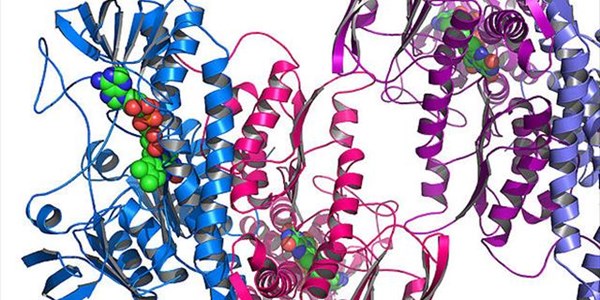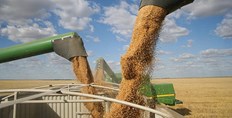Agriculture
Breeders hear genomics can reduce generation interval─── SABRINA DEAN 14:00 Wed, 04 May 2016

Bloemfontein - Where in the past farmers had to spend years trying to determine whether promising livestock progeny inherited the good genes from their parents or the bad genes, in future farmers should be able to predict this much sooner.
This is according to Japie van der Westhuizen, manager of production recording at SA Stud Book, following his address to the organisation’s annual breed symposium in Bloemfontein. The focus this year is the science of genomics and how farmers can use this to maximise profits, as well as reach their breeding objectives sooner.
Van der Westhuizen says one way in which genomics will revolutionise breeding is by reducing the generation interval:
“In genetic terms generation interval is just the average age of the animal when it starts reproducing. So in dairy animals, for example, in the olden days you got these bulls that were very promising, that came out of good mothers and fathers. But you don’t know if they actually got the good genes
“So you have to test them on cows and you have to have their daughters milked first and then the bull is about twelve years old before you know if it is a good bull.”
He adds, however, that one misconception is that access to genomics takes away the need for record-keeping. He says scientists can’t actually see the genes – they can see correlations:
“Cattle would have 3,5-billion base pairs and we only test for say 100000 or 80000 of those base pairs. So it’s just like road maps on the genome. We just work with correlations – i.e. this is correlated to being a good animal or this is correlated to being a bad animal genetically.”
The symposium has also heard about work being done with local sheep and cattle populations. Dr John Becker of the Africa Centre for Gene Technology provided an update on the Beef Genomics Project, which is working on profiling of numerous breeds.
Meanwhile, Lise Sandenberg of the Western Cape agriculture department, who is conducting work on Elsenburg Merino lines, says collaboration with Australian researchers on their reference populations has resulted in some valuable insights.
Sabrina Dean/OFM News
Generation interval:
Genetic road map:













